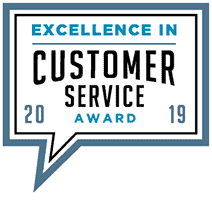Every business owner knows that customer service is key to success in that anyone can open up a laptop or turn on a phone and write a review – good or bad. This is why many businesses are weighing the options of using omnichannel customer service versus multi-channel support.
There are differences in omnichannel and multi-channel approaches in customer service, and it is important to understand each before choosing the right services.
Multi-channel support is exactly like it sounds – support is provided to customers using many different channels. These could mean handling communication through a physical store location or over the phone, or through digital channels, such as text, email, social media, voice over IP, live chat, and chatbots, etc.
A multi-channel support approach is advantageous if you already know how your customers interact with your company so that you can focus on those channels to provide customer service needs. For example, if your company receives most customer questions and complaints through social media, you would have an agent only focus on social media interactions. If email is the main form of communication, that would be where your agent’s focus would lie for customer communication and service.
Usually, businesses that adopt a multi-channel support approach focus on two or more specific channels, but each one is separate from the other. That is, they do not provide a seamless experience for the customer to communicate over the multiple channels.
A multi-channel approach works well if you know when to use the right platform, for the right message, at the right time. Yet, this isn’t always the case. However, many customers want to use a variety of communication platforms, which may make omnichannel customer service more advantageous to both you and your customers.
Omnichannel literally means using “all channels” in one seamless manner for customer service. Omnichannel customer service uses the same services as multi-channel support, but they are all interconnected as one to provide a more integrated experience for customer communication.
In today’s digital world, companies have found omnichannel customer service to provide a more personalized experience for their customers. This is because customers already jump from platform to platform throughout their day – they may find a product on your website, text or email your company, view reviews of it on social media, and then finally end up in the brick and mortar store to purchase the product.
An omnichannel approach will ensure that all of these forms of communication will act seamlessly as one unit. It is also a more customer-focused approach that views the customer’s entire journey as a key to success because a customer won’t end up lost while jumping between channels.
From the descriptions above, it may seem that an omnichannel customer support option is the way to go. However, it isn’t for all companies – multi-channel customer support can be a cheaper and more flexible option because your agents are handling one form of communication platform at a time.
Multi-channel customer support is also better for businesses that need communication through different means but do not need them to be synchronized. For example, if you primarily use a small number of phone support agents who many need to periodically follow up via email, a multi-channel customer support system could be cheaper and easier to handle.
From larger companies like Starbucks, Timberland, and Walgreens, to businesses in healthcare and finance, an omnichannel customer support system has become key to success. Their platforms work seamlessly; for example, a Starbucks customer can order a coffee via their app, get a text when it is ready, and then head to the store for pickup. Omnichannel communication integrates all forms of communication into one so that the customer has a seamless customer experience.
That being said, an omnichannel customer service is a great option for businesses of all sizes. Omnichannel customer support is focused on the customer, not the channel. It might need more time and investment, but the benefits will be worth it.
Although it could be more costly, omnichannel customer support has more advantages than multi-channel customer support, including the following benefits.
Because omnichannel contact centers can collect more data due to having all services synchronized, the customer analytics are more telling of where your customers go, what they purchase, and how they contact you, if necessary.
For example, an omnichannel contact center may collect all of the relevant data analytics to track how a company’s customers engage with them across all communication channels as one unit. This data helps with sales revenue and marketing campaigns – where is the money spent most and what adjustments may need to be made to different platforms.
Using an omnichannel approach can offer smoother service and lead to long-lasting relationships with customers. It also gives more choices for customers to communicate and allows them to do so seamlessly.
Since all of your communication channels act seamlessly as one, customers will be satisfied by having multiple ways to communicate about one specific issue.
When you have more satisfied customers, you will more than likely improve your businesses reputation and profits. This is because you will be able to retain your current customers and attract new ones because your marketing strategies will better align with your customers’ needs.
In fact, a 2021 consumer report illustrated that 63% of customers “fall in love” with a brand because of the company’s customer service. In addition, an even more impressive 89% of customers are retained through omnichannel customer service.
Both multi-channel and omnichannel support can be advantageous for companies depending on the goals of the business, but omnichannel is a better option in most cases.
We all use digital communication to find goods and services, and most customers expect immediate customer service via their phones or tablets. When omnichannel customer service is implemented, either inhouse or through a contact center, customers will more than likely come back and support your company.
Ansafone Contact Centers is an award-winning BPO provider with 50 years of world-class customer experience and brand care. We are a national call center with omnichannel services, fully equipped to help you with your business and with any special circumstances.
Please request a quote or call 800-510-0514 to learn more about how you can benefit from outsourcing a call center and how we can improve your business. We’re happy to offer insight into what your customers seek from your company’s language offerings and tailored customer solutions.











